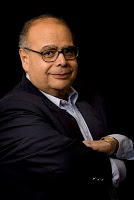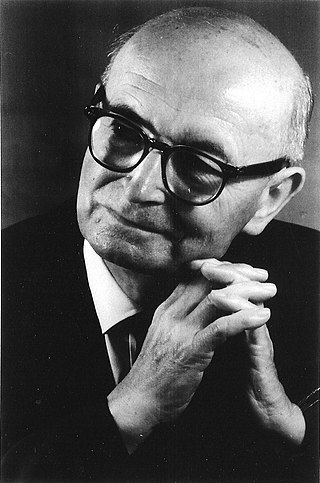Related Research Articles
A fatwā is a legal ruling on a point of Islamic law (sharia) given by a qualified Faqih in response to a question posed by a private individual, judge or government. A jurist issuing fatwas is called a mufti, and the act of issuing fatwas is called iftāʾ. Fatwas have played an important role throughout Islamic history, taking on new forms in the modern era.

Jihad is an Arabic word which literally means "striving" or "struggling", especially with a praiseworthy aim. In an Islamic context, it can refer to almost any effort to make personal and social life conform with God's guidance, such as struggle against one's evil inclinations, proselytizing, or efforts toward the moral betterment of the Muslim community (Ummah), though it is most frequently associated with war. In classical Islamic law (sharia), the term refers to armed struggle against unbelievers, while modernist Islamic scholars generally equate military jihad with defensive warfare. In Sufi circles, spiritual and moral jihad has been traditionally emphasized under the name of greater jihad. The term has gained additional attention in recent decades through its use by various insurgent Islamic extremist, militant Islamist, and terrorist individuals and organizations whose ideology is based on the Islamic notion of jihad.
Ijtihad is an Islamic legal term referring to independent reasoning by an expert in Islamic law, or the thorough exertion of a jurist's mental faculty in finding a solution to a legal question. It is contrasted with taqlid. According to classical Sunni theory, ijtihad requires expertise in the Arabic language, theology, revealed texts, and principles of jurisprudence, and is not employed where authentic and authoritative texts are considered unambiguous with regard to the question, or where there is an existing scholarly consensus (ijma). Ijtihad is considered to be a religious duty for those qualified to perform it. An Islamic scholar who is qualified to perform ijtihad is called as a "mujtahid".

Ibn Taymiyyah, birth name Taqī ad-Dīn ʾAḥmad ibn ʿAbd al-Ḥalīm ibn ʿAbd al-Salām al-Numayrī al-Ḥarrānī, was a Sunni Muslim ʿĀlim, muhaddith, judge, proto-Salafist theologian, and sometimes controversial thinker and political figure. He is known for his diplomatic involvement with the Ilkhanid ruler Ghazan Khan and for his involvement at the Battle of Marj al-Saffar which ended the Mongol invasions of the Levant. A member of the Hanbali school, Ibn Taymiyyah's iconoclastic views that condemned numerous folk practices associated with saint veneration and the visitation of tomb-shrines made him unpopular with many scholars and rulers of the time, and he was imprisoned several times.

A Mufti is an Islamic jurist qualified to issue a nonbinding opinion (fatwa) on a point of Islamic law (sharia). The act of issuing fatwas is called iftāʾ. Muftis and their fatwas played an important role throughout Islamic history, taking on new roles in the modern era.
Takfir or takfīr is an Arabic and Islamic term which denotes excommunication from Islam of one Muslim by another, i.e. accusing another Muslim to be an apostate. The word is found neither in the Quran nor in the ḥadīth literature; instead, kufr ("unbelief") and kāfir ("unbeliever") and other terms employing the same triliteral root k-f-r appear. "The word takfīr was introduced in the post-Quranic period and was first done by the Khawarij," according to J. E. Campo. The act which precipitates takfīr is termed mukaffir. A Muslim who declares another Muslim to be an unbeliever or apostate is a takfīri ("excommunicational").

Nasr Hamid Abu Zayd was an Egyptian Quranic thinker, author, academic and one of the leading liberal theologians in Islam. He is famous for his project of a humanistic Quranic hermeneutics, which "challenged mainstream views" on the Quran, sparking "controversy and debate." While not denying that the Quran was of divine origin, Zayd argued that it was a "cultural product" that had to be read in the context of the language and culture of seventh century Arabs, and could be interpreted in more than one way. He also criticized the use of religion to exert political power. In 1995 an Egyptian Sharia court declared him an apostate, this led to threats of death and his fleeing Egypt several weeks later. He later quietly returned to Egypt where he died.

Shelomo Dov Goitein was a German-Jewish ethnographer, historian and Arabist known for his research on Jewish life in the Islamic Middle Ages, and particularly on the Cairo Geniza.

Islamic military jurisprudence refers to what has been accepted in Sharia and Fiqh by Ulama as the correct Islamic manner, expected to be obeyed by Muslims, in times of war. Some scholars and Muslim religious figures describe armed struggle based on Islamic principles as the Lesser jihad.
In Twelver Shia Islam, the ten Ancillaries of the Faith are the ten practices that Shia Muslims have to carry out.
Khaled Abou el Fadl is the Omar and Azmeralda Alfi Distinguished Professor of Law at the UCLA School of Law where he has taught courses on International Human Rights, Islamic jurisprudence, National Security Law, Law and Terrorism, Islam and Human Rights, Political Asylum, and Political Crimes and Legal Systems. He is also the founder of the Usuli Institute, a non-profit public charity dedicated to research and education to promote humanistic interpretations of Islam, as well as the Chair of the Islamic Studies Program at the University of California, Los Angeles. He has lectured on and taught Islamic law in the United States and Europe in academic and non-academic environments since approximately 1990.
Jihadism is a neologism which is used in reference to "militant Islamic movements that are perceived as existentially threatening to the West" and "rooted in political Islam." Appearing earlier in the Pakistani and Indian media, Western journalists adopted the term in the aftermath of the September 11 attacks of 2001. Since then, it has been applied to various insurgent Islamic extremist, militant Islamist, and terrorist individuals and organizations whose ideologies are based on the Islamic notion of jihad. It has also been applied to various Islamic empires in history, such as the Umayyad Caliphate and the Ottoman Empire, who extensively campaigned against non-Muslim nations in the name of jihad.
Carole Hillenbrand,, is a British Islamic scholar who is Emerita Professor in Islamic History at the University of Edinburgh and Professor of Islamic History at the University of St Andrews. She is the Vice-President of the British Society for Middle Eastern Studies and a Member of the Council for Assisting Refugee Academics.
Islamic modernism is a movement that has been described as "the first Muslim ideological response to the Western cultural challenge" attempting to reconcile the Islamic faith with modern values such as democracy, civil rights, rationality, equality, and progress. It featured a "critical reexamination of the classical conceptions and methods of jurisprudence" and a new approach to Islamic theology and Quranic exegesis (Tafsir). A contemporary definition describes it as an "effort to re-read Islam's fundamental sources—the Qur'an and the Sunna, —by placing them in their historical context, and then reinterpreting them, non-literally, in the light of the modern context."
The use of politically and religiously-motivated violence dates back to the early history of Islam, its origins are found in the behavior, sayings, and rulings of the Islamic prophet Muhammad, his companions, and the first caliphs in the 7th, 8th, and 9th centuries CE. Mainstream Islamic law stipulates detailed regulations for the use of violence, including corporal and capital punishment, as well as how, when, and against whom to wage war.
Yunus ibn Habib was a reputable 8th-century Arab linguist. An early literary critic and expert on poetry, Ibn Habib's criticisms of poetry were known, along with those of contemporaries such as Al-Asma'i, as a litmus test for measuring later writers' eloquence.

Christiaan Snouck Hurgronje was a Dutch scholar of Oriental cultures and languages and advisor on native affairs to the colonial government of the Dutch East Indies.
Peri J. Bearman is an academic scholar of Islamic law. She was the Associate Director of the Islamic Legal Studies Program at Harvard Law School. She is also currently the Editor-in-Chief and Islam section editor for the Journal of the American Oriental Society (JAOS).
Islamopedia Online was a website dedicated to providing a comprehensive database of information regarding Islam, its most influential leaders, and translations of current topics and religious opinions.
References
- ↑ Prof. mr. dr. R. Peters, 1943 at the University of Amsterdam Album Academicum)
- ↑ In Memoriam: Prof. dr. Ruud Peters The Netherlands-Flemish Institute in Cairo
- ↑ dhr. prof. dr. R. (Ruud) Peters. University of Amsterdam. Retrieved 22 August 2017.
- 1 2 In memoriam Prof. dr. Rudolph Peters (1943-2022) Amsterdam Centre for Middle Eastern Studies. Retrieved 5 August 2022
- ↑ Jihad: A History in Documents (2016 Expanded Edition). Markus Wiener Publishers. Retrieved 22 August 2017.